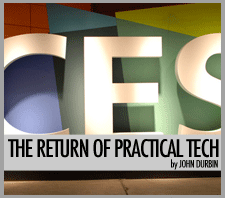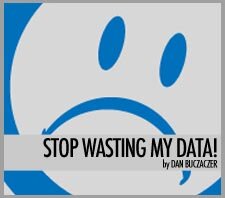4 TYPES OF DIGITAL FRIENDSHIPS
Posted by Matt Gibbs | March 6, 2009
Now that is social networking in cyberspace, digital friendships are becoming a regular part of everyday life. Whether it’s broadcasting your whereabouts, stalking old friends, or managing a digital rolodex, the internet is a medium that can both enrich and tarnish friendships without any real interaction.
While much of the digital friendship discussion focuses on the extension of real-life relationships on Facebook or MySpace, there are numerous other platforms that facilitate different types of relationships. Not sexual ones. Well maybe, but I’m not talking about those.
Below are the 4 Types Of Digital Friendships that are a regular part of digital culture.
Everybody’s doing it
Platforms: Facebook, MySpace, Instant Messaging Clients (AIM, Gchat, etc.)
Description: This friendship includes your catalog of life acquaintances. Everyone you know (except the annoying “too cool” person) is using these sites and it’s how they can always reach you as well as discover your relationship status and social life (or lack thereof).
Annoyances:
- Incognito = impossible
- Awkwardly ignoring friendship requests (instead of declining) from long lost Johnnies that shouldn’t be keeping tabs on you
- Old people not understanding that just because you don’t have an Away Message doesn’t mean you’re at the computer
I don’t know you, but I’m watching you
Platforms: LinkedIn, Twitter, Blogs
Description: This friendship is sometimes two-way, but typically one party puts in the bulk of the voyeuristic effort. It’s slightly different on each platform:
LinkedIn: Where you “connect” with long lost colleagues by only logging in when you get a request from someone interesting or you need a favor from someone distant enough to not be your Facebook friend. If you’re a recruiter or salesperson, you use LinkedIn the same way the rest of us use Facebook
Twitter: You follow every tweet, retweet select items, and occasionally send @replies, but he never acknowledges you. Regardless, you still follow like a resilient teenage boy trying to score the head cheerleader. Or maybe you are trying to score the digital world’s head cheerleader, .
Blogs: You read PerezHilton so much that you say “Perez said…” when re-telling a story to your friends as if Perez speaks to you
Regardless of platform, all of these are ego-boosting aides for those atop the influence pyramid.
I want to know what you’re doing 24/7
Platforms: Twitter
Description: Very similar to “I don’t know you, but I’m watching you,” except that it takes a step further into stalkerdom. The relationship features an excessive life-blogging twitterer and their gang of followers. Interestingly enough, has built quite a following of people who are aware of and interested in what he ate for breakfast, watches on TV (), and when he goes to bed. While it kind of makes sense to want an inside look into the life of a celebrity, it truly becomes digital stalking when following a “normal” stranger.
I’m using you to increase my virtual popularity
Platforms: Reddit, Digg, Blogs
Description: This is a friendship where both parties openly use each other to boost their digital cred. It is a mutually beneficial relationship that exists amongst bloggers as well as those active on democratic editorial sites such as Digg and Reddit.
Blogs: Bloggers are traffic hungry, and 2 key traffic drivers are search and inbound links. These 2 things are responsible for bringing new visitors as well as making a blog look better in Google’s eyes. Because of this, establishing relationships with other bloggers is imperative to a blog’s early success. The basic relationship between bloggers is simply exchanging blogroll links, which is a digital way of co-signing each other’s site. Sometimes this can extend to a digital-friendship that includes daily communication and link exchanges. Either way, both parties are in it for themselves and could care less if the other’s dog died.
Digg, Reddit, Mixx, etc.: All of these sites are based around the concept of “the people” voting on what is the best content, so it’s only natural that users would campaign to strangers to vote for their submissions. It’s quite a digital ego boost for a person to have their submission hit the front page of any of these sites, so they work for it. Many of the top users have built large Instant Messaging networks comprised of people that will vote for their content when asked and vice versa. Their conversations don’t vary much from this:
digg4life567: Hey can you please digg my top 3 faves (link)
reddddit42: Sure man. Hit this on Reddit when you get a chance and it’d be great if you could Stumble and review it as well (link)
digg4life567: Will do. Let me know if you need anything else
reddddit42: thx!
It’s my hope that next year this post won’t have to include , because that’s too much technology/friendship integration.
Related Posts
Leave a Comment
RSS feed for comments on this post · TrackBack URI

